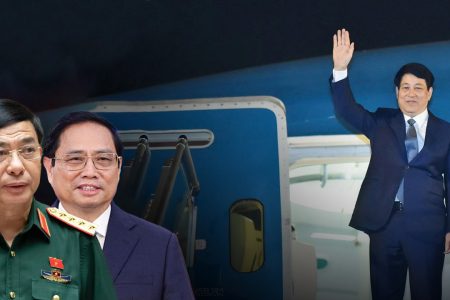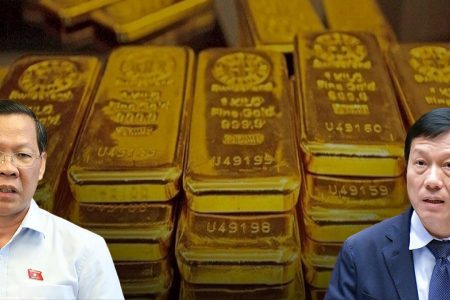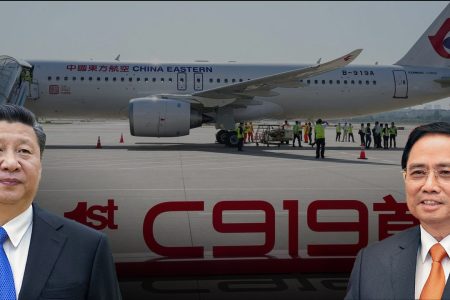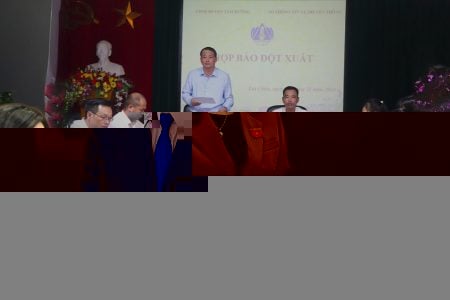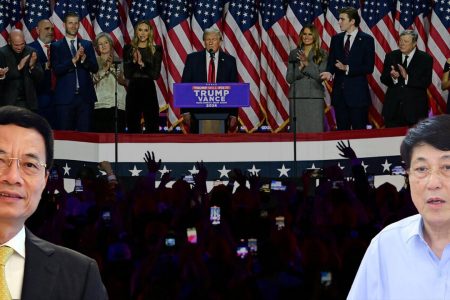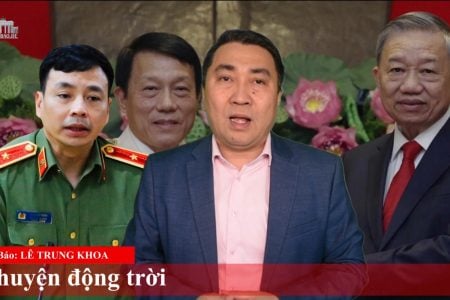Already 45 years after April 30, 1975, when the country reunified, facing great changes in the world order and many expected changes in the perception of humanity after the Covid-19 pandemic, researchers continue to discuss the Vietnam War, the issue of justice for national history and the prospect of multi-party pluralism for the future of the country were also commented.

Lawyer Le Cong Dinh: During the civil war from 1955 to 1975, North Vietnam was an aggressor and caused a bloody war, under the guise of “fighting against imperialist aggression, national liberation and unity. Country.”
That trick may fool many low-minded people, but it can’t fool all.
The invasion not only violated the 1973 Paris Agreement, but also went back in time violating the 1954 Geneva Agreement, which violated international law and international commitments.
That is not disputed. On the other hand, through this we can clearly see that the Communists only pretended to reconcile with agreements, but from the outset they never intended to negotiate true peace, but wanted to use the Agreement to prepare forces and eliminate strong opponents on the battlefield, from which military use to invade.
Professor Vu Tuong: The war action was illegal at the time – which is why the North had to hide under the name of the Southern Liberation Front of Vietnam as an independent force but infact controlled by Hanoi.
Due to the cult of nationalism in the world at the time, due to the application of the national spirit to a certain extent by the Communist Party, the use of such illegal violence was somewhat of legitimacy for many people. Of course, the old saying “the winner will be king, the losing side is the enemy” also applies in this case, after 1975.
“In order to restore justice, another government is not necessarily anti-communist,” Professor Vu Tuong made a point.

The new government can correct past injustices by abolishing all discriminatory policies as well as providing honorary (and possibly materialistic) rewards not only to the victims of the policies imposed by communists after 1975 against the Southerners but also to millions of victims of a period of “dictatorship of the proletariat” and “fast, strong, solid progress to Socialism.”
Justice does not mean revenge against the communists today because of the wrong policies of the former Communists, and the current communist government can also restore justice, although this is unlikely to happen because leaders put their partisan interests above the interests of the nation.
Dr. Nghiem Thuy Hang: As a post-war generation, I object and disagree with the way the winner had dealt with the Republic of Vietnam government and the people. If only the two sides loved, tolerated and respected each other in the spirit of martial arts and humanity as what American leaders had done after the US civil war (1861-1865), there would be no war wounds so deep in the heart of the nation.
However, since the US did not have to suffer the brutal ideological warfare and proxy warfare like Vietnam, the reconciliation is also easier.
Blood cannot be washed with blood, hatred cannot erase hatred, only pure and pure clones of water over time can neutralize hatred.
Raising hatred is like raising poisonous snakes in the heart and mind, I hope our generation and the next generation will be alert, have a suitable choice to have a happy life.
Justice of Vietnamese people is implemented in accordance with the law of cause and effect, it is still happening in accordance with the natural flow and will do its role well.
The BBC raised the question: What do you think about the trend of requiring multi-party in Vietnam. In the coming years, will this requirement be stronger?
Lawyer Le Cong Dinh: That change has been in demand for a long time, not waiting for now.
The totalitarian regime has never helped a nation develop.
In order for the Vietnamese people to revive and have a bright future, they must definitely give up communism and state institutions/communist laws.
Building a democracy backed by the political opposition and pluralist multi-party foundation is a necessary condition for Vietnam to be civilized and prosperous. That is also exempt.
Professor Nguyen Manh Hung commented: “Freedom and democracy are universal values that people everywhere want to have.
The motto of the former Democratic Republic of Vietnam and the Socialist Republic of Vietnam today is still “Independence – Freedom – Happiness.” Vietnamese people want to be free. Dissidents seek democracy.
The Vietnamese government also says democracy is the right direction to go.
Unless this common goal is achieved, the pressure will remain until it is realized.”
Dr. Nghiem Thuy Hang: This is a very sensitive question in the current socio-political context of Vietnam, but I will still answer it frankly.
In fact, the differentiation of ideas and social division in the hearts of pluralistic multi-party institutions like the US or Europe have made me have certain concerns.
In addition to the clear advantage of change and creativity, creating a lot of material wealth, the model of the opposition parties competing to fulfill the desires of such a large population was really a rational model. The most ideal or not, or will create the risk of the trend of “demagogic“, “artificial humanity“, weakening the ability to protect people’s health, not good for the stable development of the country?
I reiterate that independence, autonomy, harmony and stability have always been the core values of Vietnam, is it worth to sacrificing stability to build a pluralist multi-party model like the West? I do not believe that there are many Vietnamese want to sacrifice stability, want war and suffer accept the price of war. Without stability, peace cannot develop, fighting for each other, the country will lose, the country will be dissolved.
In my opinion, the institutional changes in Vietnam do not stand alone and partly depend on the institutional model of the large system, when the Soviet Union disintegrates, there are many changes in Vietnam’s institutional model basic.
The current Vietnamese institutional model is only capable of major changes when China’s social management institution model has fundamentally changed.
In the immediate future, when such landslide changes are temporarily not happening, Vietnam should be healthy, especially in choosing a new generation of leaders and finding people who truly carry within them, work for the nation, loyal to the core values, really kind and especially must “work of the people, by the people, for the people“.
There are good, kind individuals who will have a good, kind government. Having a really kind government “of the people, by the people, for the people” will have it all, the fact that took place in the US over the last hundred years proves this, they are such a political regime. The only difference is that they choose the value of “freedom” and Vietnamese people often choose the value of “filial piety,” making the whole village the most core value, already the core value, it is not easy to change.
Affordable, the idea of preserving the old will be broken by the younger generation in the future, so that the country can escape the stagnation, corruption, and theft of public pervasive within the Communist Party of Vietnam today.
Thoibao.de (Translated)














